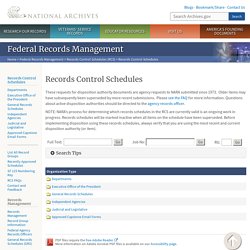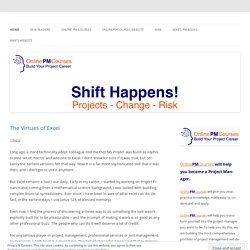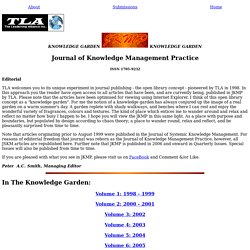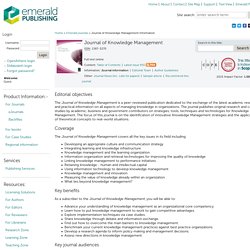

AllegroGraph. Protégé. Records Control Schedules. Tip 1: Use Phrases in Quotes Example: "audit files" Without quotation marks, any page containing the words "audit" OR "files" will appear in results.

When surrounded by quotation marks, the words are treated as a phrase and only pages with the exact phrase "audit files" will appear in results. This is the most powerful query refinement technique. Tip 2: Use a Plus (+) or Minus (-) Sign to Require or Reject Words Example: audit files +system -withdrawn You can require that the word "system" be in any documents in the results list by placing a plus (+) sign before it. Tip 3: Combine Tips 1, 2 Example: audit files +"Internal Revenue Service" +system By combining phrases with a plus (+) or minus (-) sign, and capitalizing where it's appropriate, you can increase the relevance of search results. Projects – Change – Risk. I’ve worked on projects for a diverse range of industries – including government, third sector, and global businesses, and in a recent interview, I was asked if there are any commonalities I came up against.

I think there are more things in common than not; after all, projects are a human enterprise and people are pretty much the same anywhere. I would highlight three main themes. Wherever there are projects and project managers, the central concern is always to bring control to a complex and uncertain environment. Project managers have found numerous ways but increasingly, I am seeing a strong desire for the organisation to improve its governance procedures to seize control at a strategic level.
This can only be right, ensuring precious and limited resources are properly deployed to build valuable assets for the future. One of my signature phrases in keynotes, seminars and training is that what project managers crave, above all else, is control. Exploding Topics - Discover the hottest new trends. 3 Data-Based Ways To Prove Training ROI (+ Free Training ROI Calculator) 2.

The Phillips Model of learning evaluation A major shortcoming of the Kirkpatrick Model is that it stops just short of providing a true training ROI cost-benefit analysis. You can show that the training produced measurable results, but how does that stack up against the costs of running the program? To fix that, we can look to the Phillips Model, which builds on Kirkpatrick’s framework with a fifth level: ROI. The five levels of the Phillips Model are based on Kirkpatrick’s Model, with a few tweaks meant to create more data, and context around that data, to ultimately help determine ROI. To calculate training ROI, you would collect the data for levels 1-4, creating your chain of evidence, just like in the Kirkpatrick Model.
Library - J. Knowledge Management Practice: Journal of Knowledge Management Practice Editorial TLA welcomes you to its unique experiment in journal publishing - the open library concept - pioneered by TLA in 1998.

In this approach you the reader have open access to all articles that have been, and are currently being, published in JKMP by TLA. Please note that the articles have been optimised for viewing using Internet Explorer. I think of this open library concept as a "knowledge garden". Note that articles originating prior to August 1999 were published in the Journal of Systemic Knowledge Management. If you are pleased with what you see in JKMP, please visit us on FaceBook and Comment &/or Like. Peter A.C. In The Knowledge Garden: Volume 1: 1998 - 1999 Volume 2: 2000 - 2001 Volume 3: 2002 Volume 4: 2003 Volume 5: 2004 Volume 6: 2005 Vol. 7, No. 1, March 2006 Vol. 7, No. 2, June 2006 Vol. 7, No. 3, September 2006. Journal of Knowledge Management information. Editorial objectives The Journal of Knowledge Management is a peer-reviewed publication dedicated to the exchange of the latest academic research and practical information on all aspects of managing knowledge in organizations.

The journal publishes original research and case studies by academic, business and government contributors on strategies, tools, techniques and technologies for Knowledge Management. The focus of this journal is on the identification of innovative Knowledge Management strategies and the application of theoretical concepts to real-world situations. Coverage The Journal of Knowledge Management covers all the key issues in its field including: Key benefits As a subscriber to the Journal of Knowledge Management, you will be able to: Advance your understanding of knowledge management as an organizational core competency.
Key journal audiences. Journal home.